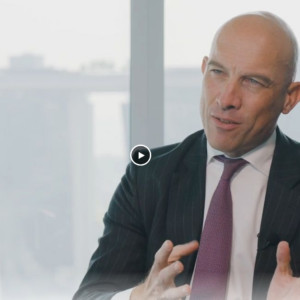Why size still matters for private markets funds in the impact space

Large institutional investors, in common with wealth managers and private banks, tend to favour bigger, established private equity managers, rather than emerging houses. But there are signs this is gradually changing
Wealth managers and family offices – increasingly conscious of growing client demand for impact investments – are facing a major conundrum. How can they access key projects in the crucial private markets space, when many big ticket funds are closed to their clients?
While most wealth firms prefer large private equity (PE) managers with long track records and strong brand recognition ahead of emerging houses, the practicalities of access do not generally favour their high net worth clients.
Rather than delving deeper into the personal investment arena, well-established PE fund managers such as Blackstone, Carlyle and KKR tend to rely on big pools of capital from large institutional investors, such as insurance companies and pension funds.
Those PE fund managers which accept the size of cheques family offices or wealth managers write, are typically small and new, and often struggle to raise capital. More than 75 per cent of impact managers have assets under management below $200m, according to the Global Impact Investing Network (GIIN). Lack of track record presents the biggest challenge for around 30 per cent of asset owners (see chart).
But lack of numbers does not equate with poor performance, with industry data showing returns produced by first time funds often exceed or match longer-term players (see chart).
Emerging managers are also relevant in the impact investing space as they specialise in smaller deals, typically shunned by large PE firms. The availability of these smaller deals has significantly increased in recent times, reflecting growing numbers of impact-driven businesses, with many entering the space of energy efficiency or circular economy in recent times.
The problem, explains Jim Roth, founder of Zamo Capital and previously at the helm of $2bn impact PE firm LeapFrog Investments, is that wealth managers and family offices lack in-house capacity to conduct due diligence on impact fund managers early on in their growth cycle. Equally, they do not have internal resources to review individual PE co-investment opportunities.
Moreover, impact investing requires a great deal of care and attention to manage the social or environmental impact it seeks to create. “On the one hand, impact investing can provide vulnerable communities with quality, relevant and affordable goods or services, resulting in positive and life-changing outcomes,” suggests Mr Roth. “On the other hand, it can prove to be a double-edged sword, as poorly managed investments can have damaging effects.”
In fact, when it goes badly, impact investing may have a “disproportionately negative impact”. For instance, investments in building insulation can help reduce carbon emissions if correctly installed, but can lead to dreadful outcomes if installed incorrectly and catch fire, as the Grenfell Tower tragedy in west London demonstrates.
“Private banks and family offices often struggle to make investments that generate impact, because they’re very concerned about being associated with the downside risk of impact investments,” believes Mr Roth, adding that this is another reason why they prefer big fund managers with strong brand reputation.
Market mismatch
As a result, there is a mismatch between demand for impact investments and supply of these investment solutions, explains Mr Roth. Addressing this challenge, he co-founded Zamo Capital, to offer capital and advice to assist emerging managers to scale their businesses, co-investing alongside them. He also helps wealth managers, private banks and family offices invest into these emerging managers.
Going forward, with increased investor awareness, there will likely be a growing focus on making sure fund managers have a plan to avoid negative impacts, he predicts. “Investors still want to know how many tonnes of carbon have been saved and how many people have gained access to financial services or social housing, but it will also be important to understand the links between positive and negative impact of their activities.”
Those impact managers that prove successful in drawing assets will be those able to reassure investors of ability to manage downside risk of impact investing, he believes.
While small volumes and lack of track record remain challenges, impact fund sizes have increased meaningfully, with vehicle sizes above $1bn more and more common, observes Andrew Lee, global head of sustainable and impact investing for UBS Global Wealth Management.
In recent years, there has been more capital intentionally invested for impact, with assets increasingly flowing to smaller and emerging mission-driven investment firms, which gave rise to the industry in the first place, he adds. The major hurdle lies in these funds’ ability to clearly communicate their mission to the marketplace.
“Impact funds that are smaller and/or more targeted in thematic or geographic focus still typically need to show multiple fund track records,” says Mr Lee. “And in general, smaller size funds remain harder for institutional investors to allocate into, while wealth platforms still wrestle with underwriting and making smaller size funds profitable.”
As a result, challenges persist for smaller and emerging impact firms to raise assets at the scale they seek, as capital “disproportionately” flows to larger firms that have more familiarity with institutional investors and wealth platforms.
“There are positive signs that this dynamic is changing, with some emerging impact funds being backed in recent years by family offices, institutional investors and wealth platforms,” suggests Mr Lee. “But it’s not happening quickly enough.”





